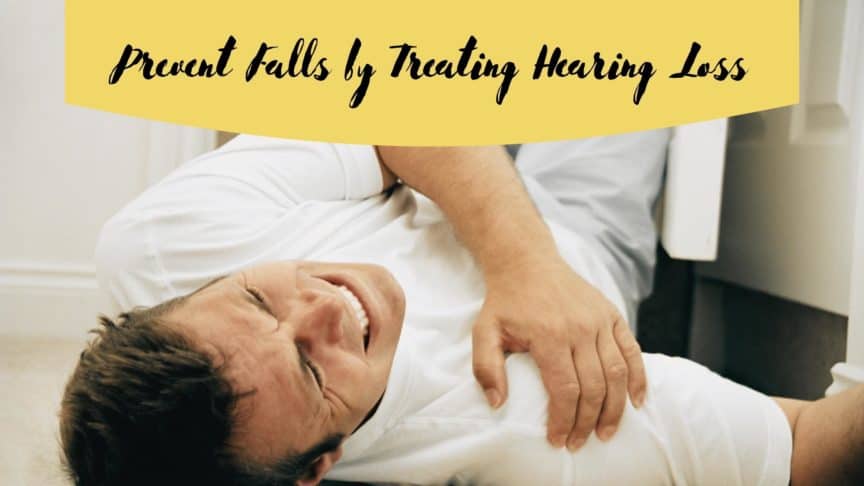- Navigating Concerts When Wearing Hearing Aids - April 28, 2024
- How to Care for Infants With Hearing Loss - April 15, 2024
- Hearing Aid Tips for Runners - April 5, 2024
Are you one of the 48 million people in the US who struggle with hearing loss? You might be and not even know it. Hearing loss often develops slowly over years, so you don’t realize you’ve lost parts of words and sentences. This causes us to struggle through conversation and social situations, without identifying exactly why. The longer hearing loss goes untreated the worse these symptoms can become until they may find themselves struggling with depression and loneliness, connected to undiagnosed hearing barriers.
However, there is another alarming side effect of hearing loss which fewer people are aware of. Our ears not only help us hear but contribute to keeping us upright and balanced. Did you know that hearing aids can not only help you hear better but help prevent falls, accidents, and hospitalizations?
How Common Are Falls?
According to the National Council on Aging, one in four adults over the age of 65 falls every year. Alarmingly, every 11 seconds an older American will visit an emergency room seeking treatment after a fall. When we are young our bones are stronger, and we can brush ourselves off in many instances. However, a fall for us as we age can be a much more serious event, often leading to health complications leading to mortality.
One reason for the increase in falls is a loss of mobility and dexterity. However, growing evidence shows that even a mild hearing loss can increase the risk of falls. Recent findings have shown that even a 25-decibel hearing loss—equivalent to going from normal to mild hearing loss—triples your chance of falling in people aged 40 to 69, according to a study from Johns Hopkins University.
How Hearing Loss Affects Balance
We rely on our senses to help us navigate the world. This includes visual and audio cues. When we are less aware of sounds around us, we have less reaction time. We may miss an approaching sound out of sight such as a dog moving at our feet or oncoming traffic out of sight. The loss of these audio warnings can increase the likelihood of us falling.
Hearing loss in seniors may be linked to declines in the vestibular system. The vestibular system is a set of receptors in your inner ear, which help your brain determine your position from upright to down. As we age these receptors can become damaged or depleted, causing vertigo or dizziness and affecting our mobility in the world.
Hearing Aids Improve Balance
While most forms of hearing loss are irreversible, hearing aids are being used by more and more people to improve enhanced hearing and balance. Because many accidents are caused by a lack of awareness of space, hearing aids allow the wearer to become more alert again. When we hear clearer we can be alert in our space and feel more confident to exercise and stay active. A boost in activity can strengthen muscles, improve confidence, and help us stay upright, healthy, and safe.
It is also believed that hearing aids also reduce your cognitive load. Hearing loss can be exhausting as we struggle to hear day after day. When the need for our brain to piece together conversation is eliminated due to properly functioning hearing aids, we no longer have to devote energy to that strain. The result is a clearer and more alert brain which can lower the risk of falls, significantly.
Testing Balance
In fact, a 2015 study from Washington University in St. Louis tested balancing abilities in 14 people over the age of 65. They measured balance by having the patients stand on a thick foam mat and recorded the length of time they could keep balance. When the patients wore a hearing aid, they were able on average to stay balanced a few seconds longer than without. The researchers determined that many of the participants were not conscious of improved balance, but it enabled better balance, just the same.
Finding the Right Hearing Aid
To find the right hearing aids for you, it is imperative to schedule a hearing exam today. The longer you go without addressing a hearing loss, the longer you go without addressing the risk of unneeded accidents which could affect the quality of your life, out of the blue. Take the leap today and invest in the future of your health, by scheduling a hearing exam now.

